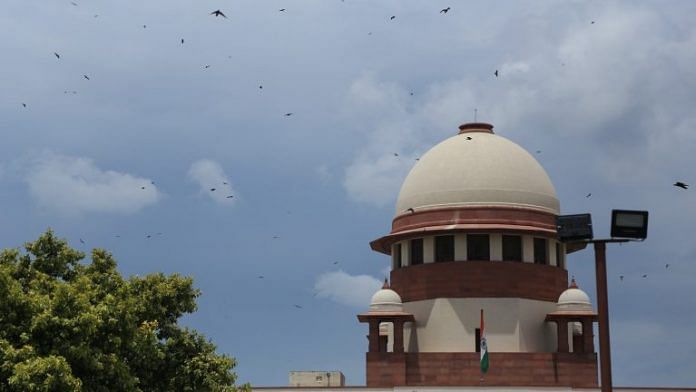New Delhi: Women from the Jacobite faction of Malankara Syrian Church have moved the Supreme Court to protect their right to confess before a priest, albeit one who belongs to their group.
Five women have filed an Article 32 petition, asserting their right to confess is an intrinsic part of their right to privacy that must be protected. And, this protection can only be granted if the priest belongs to their faction, the women say.
The petition comes almost a month after the apex court bench led by Chief Justice S.A. Bobde agreed to hear a case in which members of the Orthodox faction of Malankara Syrian Church — the rival of Jacobite — have questioned the practice of sacramental confession before a priest as violative of an individual’s privacy.
The petitioners have highlighted instances where women in the church were sexually exploited by priests who blackmailed them, threatening to publicise their confession.
In their plea, the women have cited this misuse of mandatory confession to demand they should be allowed to confess before a priest of their choice, one who maintains faith in the “spiritual supremacy” of the Patriarch of Antioch.
According to them the parish is headed by priests who belong to the other faction — the Orthodox, which does not believe the supremacy of Patriarch of Antioch. Since confession involves laying bare of secrets, it must be before a priest who the petitioners can trust, the women have submitted.
‘Protect our rights under Articles 25 and 26’
Since confession is an essential religious practice for Christians, it is part of the Seven Sacraments and Funeral Services in the Parish Churches, the women say, it needs to be given constitutional protection under Articles 25 and 26 — the two rights that promise an individual and a religious denomination the right to freely practice one’s religion.
Speaking to ThePrint, Advocate Haris Beeran said the priest appointed for conducting religious services in the petitioners and similarly placed person’s parish churches do not believe in the Spiritual supremacy of the Patriarch of Antioch. Therefore, the women cannot repose trust and faith in them.
“It is for this reason why several instances of sexual exploitation surfaced in the past. The women want the court to safeguard their constitutional right to follow their essential religious practices,” he said.
Also read: Celibacy vows are absurd, but can’t be blamed for Kerala nun’s rape
‘Bond between followers and their priest is sacred’
According to the women, the priests before whom they confess do not belong to the lineage of Patriach of Antioch and, therefore, not consecrated.
By appointing a priest who does not follow the same faith as the petitioner, the church has violated their right to freedom of faith and belief.
Also, such an appointment disrupts the essential practice to confess. “A confession involves laying bare all the secrets of the confessor, which he or she believes to be sinful. Therefore, the bond between the followers and their Priest is sacred and therefore complete faith and trust is essential for this act to be performed,” stated the petition.
“This makes it necessary to have a priest in whom the trust of the parish lies,” Beeran said, underlining the reason to move the court.
Petition does not seek review of 2017 verdict
On Friday, when the matter was heard by a bench led by CJI Bobde, Attorney General K.K. Venugopal contended the petition stemmed from a dispute between the two factions — Orthodox and Jacobite.
It was his suggestion that the petitioners move the Kerala High Court as the top court had, through a judgment in 2017, authoritatively settled the row, with a verdict that the 1934 constitution of Malankara church will be applied. This implied that priests of Orthodox faction will be appointed to head the churches.
However, Beeran explained that the petition does not seek a review of the 2017 judgment.
“When this verdict was delivered, the issue with regard to right to privacy was not addressed. The K.S. Puttuswamy judgment has expressly stated that confession by a Christian is a private act. We want the court to make this ruling applicable in this practice because privacy cannot be protected if confession is made before a priest of not their choice,” the lawyer said.
Also read: Supreme Court revokes interim protection for priests accused in Kerala church scandal




Hmm the factional rivalry defeats teachings of Christ. Why confess at all then.
Why do you need a postman priest to communicate your confessions to god. Can you not confess to god directly. Have the priests monopolized communication to god